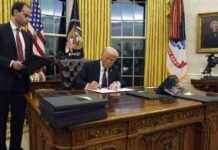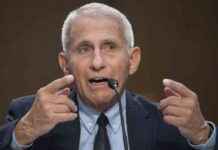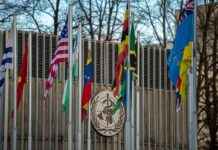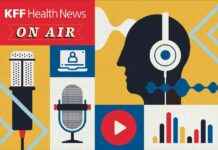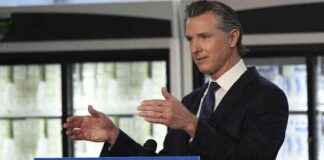Francis Collins, the former director of the National Institutes of Health (NIH), recently issued a warning about the potential jeopardy faced by two groundbreaking research programs due to budget cuts and other actions by the Trump administration. Collins expressed concern for the BRAIN initiative, focused on mapping brain activity, and the All of Us project, aiming to gather health data from a diverse group of Americans. These initiatives are integral to advancing medical research and tailoring healthcare to individual needs.
The message was delivered during a speech at the Lincoln Memorial in Washington, where Collins addressed a crowd of about 2,000 individuals who had gathered for a Stand Up for Science rally. This event was part of a series of rallies held nationwide to support science and highlight the importance of research funding. Amidst the sea of people, signs with witty slogans like “Cancer thanks Trump for the NIH Budget Cuts” and “Time to react” added a touch of humor to the somber atmosphere.
Unity in the Scientific Community
These rallies were not just about expressing discontent; they were also about fostering a sense of community among scientists facing uncertain times. Events took place in 32 cities across the U.S., with additional rallies at various universities and towns around the world. The overarching message of “Standing Up for Science — because science is for everyone” resonated with attendees who celebrated diversity among scientists.
In Boston, hundreds of individuals gathered at the Boston Common to voice their concerns and share personal stories about the impact of recent developments on their work. From established researchers to undergraduates, the sentiment was one of frustration and uncertainty. Gary Ruvkun, a speaker at the Boston protest and a Nobel laureate, emphasized the pivotal role of government investment in scientific advancements and criticized the potential setbacks caused by funding cuts.
Voices of Concern
One of the most poignant moments came when Nancy Kanwisher, a neuroscientist at MIT, shared her experience of a grant proposal left unreviewed due to halted NIH study sections. Her story echoed the sentiments of many researchers facing delays in funding and uncertainty about the future of their work. Brianna Close, a Ph.D. student, expressed the anxiety felt by many in the field as job opportunities dwindle and hiring freezes become common.
The emotional impact of these challenges was further underscored by attendees sharing personal connections to the NIH’s work. Francis McMahon, an NIH researcher, held up a sign that read “NIH research SAVED my life,” recounting his own experience of receiving treatment that allowed him to recover from a stroke. These stories served as powerful reminders of the real-world implications of scientific research and the importance of continued support for such initiatives.
As the scientific community grapples with uncertainty and funding challenges, Collins urged for a more thoughtful approach to decision-making, emphasizing the need to prioritize scientific opportunity and public need over political considerations. The rallying cry for science and solidarity echoed through the streets, reminding all in attendance of the critical role research plays in shaping a healthier future for all.


